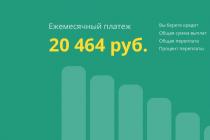This is a small but useful article, in my opinion, which is equally suitable for both legal entities and individuals.
My clients often turn to me with the question: "is the bailiff - the executor obliged to inform the claimant about all actions for enforcement proceedings." This issue is basically understood as follows, within the framework of enforcement proceedings, the bailiff must do some work aimed at searching for the debtor's property. These are requests to banks, requests to Rosreestr, to the traffic police, and, accordingly, getting answers to them.
So, Should the bailiff, after sending any request or receiving a response to it, notify the claimant?!
Let's figure it out together. In accordance with the Law on Enforcement Proceedings, persons participating in enforcement proceedings are notified of the time and place of enforcement actions or the application of enforcement measures or are summoned to the bailiff with a summons with acknowledgment of receipt, telephone message, telegram, using electronic, other types of communication and delivery or by a person who, with his consent, the bailiff instructs to deliver them.
This provision of the Law does not oblige the bailiff to inform the recoverer about the progress of the enforcement proceedings and all the actions taken above. And the mere fact of failure to notify the recoverer of all the actions taken within the framework of enforcement proceedings is not a basis for concluding that the bailiff is inactive.
This position is also supported by case law. Resolution of the Arbitration Court of the Moscow District dated 11/18/2015 No. F05-15301 / 15 in case N A40-65471 / 2015. In this trial, the plaintiff - the recoverer asked to recognize the inaction of the district bailiff department as illegal. He indicated that he had repeatedly sent inquiries about the progress of enforcement proceedings. But no response was received. The courts of all instances rightfully rejected the plaintiff's argument that the bailiff was not obliged to inform him about the actions carried out within the framework of enforcement proceedings and did not consider that the bailiff was inactive.
The court also indicated, and I agree with this position, that the Federal Law “On Enforcement Proceedings” gives the right to the recoverer to get acquainted with the materials of enforcement proceedings, make extracts from them, and make copies. And after you have familiarized yourself with the enforcement proceedings and found that the bailiff does not send requests or answers about the available property, and the bailiff does not seize or levy a penalty on him, you can recognize inaction as illegal in court.
You rarely meet a person who would voluntarily want to deal with bailiffs. But, unfortunately, life is such that anything can happen. And no one is immune from debt. Well, if the case went to court, then communication with bailiffs cannot be avoided. But it is not rare that a person does not even suspect that enforcement proceedings are being conducted against him. Let's try to figure out how bailiffs should notify debtors of their actions so that ignorant citizens do not get into an awkward situation. Content
- What is enforcement proceedings
- Notification of debtors
- If the bailiff did not notify the debtor
- Conclusion
What is enforcement proceedings So, to begin with, let's find out what such enforcement proceedings are. In simple terms, this is a set of actions aimed at the execution of a court decision.
Are bailiffs required to notify bank accounts that have been seized?
Berezutsky Vladimir Nikolaevich (10/22/2012 at 10:12:23 am) Hello. In accordance with Article 30 of the Federal Law "On Enforcement Proceedings" dated 02.10.2007.
№229-
FZ the bailiff initiates enforcement proceedings on the basis of a writ of execution at the request of the claimant, unless otherwise provided by this Federal Law. The application may contain a petition to seize the debtor's property in order to ensure the execution of the claims contained in the executive document for property recovery, as well as to establish restrictions for the debtor provided for by this Federal Law.
The bailiff's right to seize is also contained in Article 64 of this Law. Thus, the bailiff has the right to seize funds (and not bank accounts, as you indicate).
Bailiffs are required to notify of the arrest of a bank account
Important
If the funds available on the accounts of the debtor are not enough to fulfill the requirements contained in the executive document or the decision of the bailiff, the bank or other credit organization transfers the available funds and continues further execution as funds are received on the account or accounts of the debtor until the execution contained in the executive document or decision of the bailiff-executor of the requirements in full. The bank or other credit institution shall immediately notify the bailiff or the recoverer of the transfers made, if the executive document was received from the recoverer.
10.
Do bailiffs have to notify?
- home
- Bankruptcy
The arrest of an account of an organization or an individual entrepreneur implies such an action that is aimed at fixing funds in settlement accounts. Such fixation does not allow the bank client to make the necessary operations with the money in the account, within the amount that was arrested.
Attention
Arrest of accounts by bailiffs This procedure should not be confused with the suspension of account operations, in which a complete ban is imposed on the debtor's accounts. That is, the client of the bank cannot use his money at all.
The arrest of a specific amount does not imply a complete ban, which means that if the total amount of funds in the account exceeds the amount arrested, you can use the money (See also the article ⇒ Arrest for a car on lease. The procedure for removing the arrest).
The bailiffs arrested the account - what to do? how to unfreeze an account
Since October 1, 2017, some innovations have been introduced. So, in accordance with Article 67 of the Federal Law "On Enforcement Proceedings", the following citizens may be prohibited from traveling abroad:
- having a non-property debt;
- having debts over 10,000 rubles related to the payment of alimony; compensation for harm to health, loss of a breadwinner; infliction of property damage, as well as moral damage received as a result of the crime committed;
- having a debt of more than 30,000 rubles associated with various property claims (in some cases, under this item, the bailiffs have the right to impose a travel restriction with a debt amount of more than 10,000 rubles).
Bailiffs and the Border Guard Service of the Federal Security Service of the Russian Federation exchange information electronically.
The bailiff did not notify the debtor of the initiation of enforcement proceedings
If the bailiffs have arrested the account What to do when it suddenly turns out that the card is blocked or money has been debited from the deposit based on a court decision? First, you need to determine whether the actions of the FSSP are legitimate. If the enforcement proceedings were actually initiated, the bailiffs seized the account and there is an outstanding debt, the best solution would be to pay it off as soon as possible.
But this is not enough. It is imperative to submit receipts of payment to the bailiffs, only after that the arrest will be lifted. In the event that the actions of the FSSP are illegal, a complaint must be filed.
It is advisable to write a statement addressed to the senior bailiff, not forgetting to attach a document confirming the illegality of the arrest of funds in the account. If these actions did not help, you need to go to court with an appeal against illegal arrest.
What to do when arresting accounts by bailiffs. the procedure for removing the arrest
Upon receipt of the deposit account of the bailiff unit of the debtor's funds in a larger amount than necessary to pay off the amount of the debt, determined in accordance with Part 2 of Article 69 of this Federal Law, the bailiff shall return the excessively received amount to the debtor. 11.1. From the date of revocation of a banking license from a bank or other credit institution, executive documents on foreclosure on the debtor's funds held on his accounts with such a bank or such credit institution are subject to execution subject to the provisions of the Federal Law "On Banks and Banking" and Federal Law No. 40-FZ of February 25, 1999 “On the Insolvency (Bankruptcy) of Credit Institutions”.
In the daily life of spouses, various events occur. Sometimes they lead to the most unexpected and not very good consequences.
Often, the problem of debt under an executive document becomes acute for spouses, when one of them acts as a creditor or debtor.
It will be useful for both parties to know whether the bailiffs can describe the property of the wife in the debt of the husband.
In accordance with the law, which is also in force in 2020, if the debtor does not have other property at the expense of which the debt will be paid, the bailiff has the right to describe and seize property assets that are jointly acquired.
 In any case, spouses in marriage, regardless of its status, acquire property during the period of family life.
In any case, spouses in marriage, regardless of its status, acquire property during the period of family life.
By the laws of the Russian Federation, it is recognized as common property, it does not matter to whom it is issued, which spouse contributed money to acquire it or open a bank account, and also who replenished this account.
Thus, property is recognized as jointly acquired if it was acquired during marriage.. It does not matter what contribution to its purchase was made by each of the spouses.
In the modern world, in many families, the husband is engaged in financial support for the family, while the wife is in charge of the common household and is engaged in raising children.
In such situations, all property assets that were acquired during marriage will also be considered joint.
The exception includes property donated or inherited by the wife, it will be considered personal.

According to Article 35 of the Family Code, husband and wife own, use and dispose of common property by agreement.
Therefore, one of the spouses cannot, without the consent of the other, donate, sell or otherwise dispose of jointly acquired property. With regard to consent, it must be in writing.
If the second spouse did not give his consent, then he has the right to apply to the court with a statement of claim within one year after he learned about the transaction. In most cases, the court will recognize such a transaction as invalid, and a decision will be made in favor of the applicant.
 In 2020, the law regulates the debt collection procedure, as well as the property that can be foreclosed.
In 2020, the law regulates the debt collection procedure, as well as the property that can be foreclosed.
The debt to the creditor can be repaid by the following:
- Cash on current accounts, deposits of a person who has a debt.
- Securities of various types. It can be shares, business papers, stocks, bonds and others.
- Debtor's property that has not been withdrawn from circulation. It can be both movable and immovable property. It doesn't matter who uses it. If the right of ownership of a person is confirmed, then a penalty is imposed on his property.
The debtor has the right to independently determine which property will be used to pay off the debt.
In the event that personal property is not enough, then the bailiffs have the right to describe the property of the wife for the debts of the husband, if such property is considered jointly acquired.
The final sequence of foreclosure is established in accordance with the provisions of the Federal Law "On Enforcement Proceedings".
 The bailiff has the right to make demands, and the debtor is obliged to transfer to him information about the rights to property.
The bailiff has the right to make demands, and the debtor is obliged to transfer to him information about the rights to property.
It includes exclusive rights to:
- products of intellectual activity;
- individual creations;
- requirements under separate agreements on alienation;
- use of property and intellectual prerogatives.
In accordance with Article 70 of the above law, cash that is found in the debtor's possession is subject to seizure and seizure.
 In cases where the debtor has a debt and does not provide information about his property, the bailiff makes inquiries to the relevant institutions, primarily to the Federal Tax Service.
In cases where the debtor has a debt and does not provide information about his property, the bailiff makes inquiries to the relevant institutions, primarily to the Federal Tax Service.
He is obliged in the performance of his actions to establish who owns the property, to allocate the share of the debtor and use it to pay off the debt. In such situations, the question arises whether the property of the wife can be arrested for the debts of the husband.
It should be borne in mind that in situations where the spouses are co-borrowers, in order to pay off the debt, jointly acquired property can be used in full. Since the obligation of the spouse is also responsible.
In addition, the recovery is levied on the common object of the spouses if the loan was spent on the needs of the family.
But this fact must be established in court without fail. This provision is enshrined in Article 45 of the Family Code of the Russian Federation.
It also provides that when the joint property is insufficient to pay off the debt, the spouses are jointly and severally liable, which extends to the property of each of them.
 It is from this that the acquisition of the status of a debtor by a wife follows if her husband has not repaid his debt.
It is from this that the acquisition of the status of a debtor by a wife follows if her husband has not repaid his debt.
In this case, the decision of the court is executed by the bailiff. On this basis, he has the right to block her bank account, collect debt from her income.
In other cases, when the husband spent the loan on needs that are not related to family needs and the wife was not a co-borrower or guarantor, the bailiff cannot levy a claim on the wife's share and her personal belongings, real estate or car.
And also, the bailiffs cannot describe the property of the husband when the debtor is the wife.
The wife can protect her property rights, for this she needs to provide evidence that these funds, car or real estate are personal.
As evidence, it is enough to present a deed of gift for an apartment or a document on entering into an inheritance.
Thus, the spouse has the opportunity to protect her personal belongings and the bailiffs will not be entitled to describe the wife's property for the husband's debts.
 Employees of the FSSP may demand payment of the husband's debt only if there is joint and several liability of the spouses for the obligation.
Employees of the FSSP may demand payment of the husband's debt only if there is joint and several liability of the spouses for the obligation.
In this case, the wife will have to pay off part of the debt or its full amount at the expense of personal funds. Later, you can try to recover these funds from your spouse.
The husband undertakes to reimburse the wife for part of the amount she paid or the entire amount from his own resources.
This situation occurs when the spouses act as co-borrowers under the obligation and when the wife is the guarantor. In all other cases, it is unlawful to demand repayment of the husband's debt.
In practice, bailiffs often violate the norms established by legislative acts, thereby exceeding their authority.
For example, they may not take into account the documents submitted by the debtor's wife, which confirms that the property belongs to her by right of ownership.
Bailiffs can describe the property of the wife, despite the fact that she is not a defendant in court. In such a situation, the spouse needs to file a claim with the judicial authority against the bailiffs in order to appeal their actions.
 Not only bailiffs can act illegally, but also the debtors themselves, in most cases involuntarily.
Not only bailiffs can act illegally, but also the debtors themselves, in most cases involuntarily.
Therefore, you should not do the following:
- Buy real estate to the debtor or his wife in the process of enforcement proceedings. This can be perceived as malicious evasion of payment of accounts payable.
- Buy real estate or expensive equipment when the instructions of the writ of execution are not implemented due to the lack of property that can be foreclosed. The creditor has the right to repeatedly present a writ of execution to the bailiffs within three years from the date of the first application.
In any disputable situation, you can contact the enforcement service in person or by phone to find out if the rights are infringed during the execution of enforcement actions.
Thus, bailiffs cannot seize the property of the wife, which belongs to her by right of ownership for the debts of her husband. This applies to a car purchased for personal use and other personal items.
 The same is provided for the property of the husband in the case when the debtor's wife. To do this, you will need to provide evidence of ownership of the property.
The same is provided for the property of the husband in the case when the debtor's wife. To do this, you will need to provide evidence of ownership of the property.
But the law regulates that the foreclosure is applied to the personal property of the wife or husband when there is not enough joint property to pay off the total debt or debt that was spent on the needs of the family.
This fact must be established in the course of the trial.. The bailiffs have the right to demand payment of the husband's debt if the spouses were jointly and severally liable for the obligation.
The wife will have to pay the debt or part of it from personal funds. Then she has the right to recover them from her husband.
Video: Arrest by bailiffs of jointly acquired property for the debts of an ex-husband
Now many take out loans, and some borrowers, for some reason, cannot repay them. Acting under the law, the creditor must initiate the opening of a court case. If the debtor is still not going to return the loan taken, then the court may issue a decision on the forced collection of the debt.
Further, the court decision is transferred to the bailiff service, they open an enforcement case on it. If the borrower refuses to return the obligations under the loan, they seize his property and describe it as a debt. The law clearly indicates that this can only be done with property that belongs directly to the borrower. This does not apply to relatives' property.
But sometimes it happens that bailiffs can come to the adult children of the debtor and begin to persuade them to pay for their parents, putting pressure on family ties. As a last resort, they frighten by the fact that they will already seize their property. So many are interested in the question, but can they do this.
Can bailiffs seize property for parental debts
Article 60 of part 4 of the Family Code says unambiguously - neither parents nor children have proprietary rights to each other's property. And this means that bailiffs will not be able to arrest the property of children for parental debts. After all, if the child is an adult, then he is already a capable citizen, and everything he owns is already his.
You can confirm this:
- Contract of sale, donation.
- Checks and receipts for purchases.
- Warranty cards, etc.
So, no matter how the bailiffs want to end the enforcement proceedings, they cannot seize property that belongs to another person.
Can bailiffs generally describe the property of children for parental debts
Unfortunately, they have such an opportunity. There are several ways in the law. Let's consider them in more detail:
- Parents with children are registered in the same apartment (parental). And there is a high possibility that the property of children will fall under the inventory. But bailiffs have no right to seize personal belongings, memorable gifts and awards.
- The child enters into the parental inheritance. In this case, the debts of the testator are transferred to the heir.
- Parents and children have joint property.
- Children act as guarantors of their parents.
In the first case, children need to prove that the described property belongs to them by right. How to do this is described above. But let's just say that it's hard work.

In the case of inheritance, the heir receives along with the inheritance and parental debts. If there are several of them, then they answer jointly and severally in proportion to the share received. Here the law will provide some assistance to the heirs:
- What was the amount of the debt at the time of the death of the debtor, so it remains afterwards. The lender can subsequently charge at least some interest, they will not be taken into account. The amount remains unchanged.
- In the case of several heirs, the amount of debt of each must not exceed the value of the inheritance received.
In this case, the limitation period is calculated not from the moment of the death of the debtor, but from the moment the obligation for debts arises. And the death of the debtor in no way can affect this period.
Also, heirs often face bad faith of creditors when they find out about the debt just before the end of the statute of limitations. During this time, the lender usually charges a large percentage and requires it to be paid. So, you need to know - for the time from the death of the debtor until the moment his children enter into the inheritance, no interest should be charged.
In the second case, when parents and children own joint property, bailiffs can seize only the share of the debtor. Bailiffs do not like to deal with such a case, since it is very difficult to sell a share in property.
Another thing is when children act as guarantors of their parents when taking a loan. Indeed, in this case, children are responsible jointly with their parents. And bailiffs in this case can rightfully seize the property of children for the amount of the debt. The only thing that children can do is to sue their parents after they pay off the loan they took.
What to do in these cases
In order not to have to “fight” with the FSSP and not think about how to remove the arrest from the car imposed by the bailiff, the children of debtors need to make sure that the parent has no debts before stepping into the inheritance. Lawyers suggest the next way out of the situation if debts are found out - renunciation of the inheritance. Especially if it is not of particular financial value. In this case, the law is powerless - the children did not become heirs. This means that no debts of the testator are transferred to them.
In addition, even if the bailiff describes the property of the children, based only on kinship and cohabitation, the children have the right to appeal the decision of the FSSP officer in court. This right is granted by Art. 119 FZ (On Enforcement Proceedings). According to this article, in addition to recognizing the arrest as invalid, the appealing party has the right to demand compensation for the physical or moral damage that the bailiffs inflicted on it during the inventory of property.
But it is best to resolve this issue through an experienced lawyer who has already handled similar cases.
In conclusion, it must be said that the bailiffs who came with the inventory must be checked. First, it can be collectors in a similar form. Secondly, the bailiffs themselves, wanting to close the case faster, can describe the property without a court decision. And this is illegal. But if you sign the act, then they kind of get the consent of the children to pay the debts of their parents. Here it must be said that creditors do not care who the money came from, the main thing is to repay the debt.
If we are talking about the arrest of real estate, then the decision must be sent electronically to the registering authority within three days from the date of adoption. What cannot be described? The decision itself is drawn up in two copies - one for the bailiff and the debtor. The bailiff can only describe the property that belongs to the debtor as the owner. To prove that a certain object is not his property is already included in the obligations of the debtor. To prevent items belonging to other persons from being included in the inventory, as many supporting documents as possible should be collected. If this is not done in a timely manner, it will be necessary to remove from the arrest list in court, filing a lawsuit to cancel the arrest. In this case, it will be necessary to have time to do this before the sale of the arrested thing or object. It is allowed to leave the described property for safekeeping to the debtor himself.
Are bailiffs required to notify bank accounts that have been seized?
Attention
At the same time, funds in bank accounts or pledged property can be arrested even with a smaller amount of debt. Procedure for the inventory of property by bailiffs The bailiff sends a notice to the debtor about the date and time of the inventory. Arrested things should be enough to pay off the amount of the debt.
Employees of the FSSP describe only those items that belong to the debtor. Please note: Read more about what property may or may not be seized here. Place of arrest: The arrest of the debtor's property by bailiffs takes place at the place of registration, registration or where his property is actually located.
That is, FSSP employees have the right to describe things in any apartment if the debtor lives in it. Please note: If you are interested in the question of whether bailiffs can seize the property of cohabitants or relatives of the debtor for debts, study this article.
Bailiffs are required to notify of the arrest of a bank account
In cases where the executive document is subject to immediate execution, as well as when seizing property and taking other interim measures, the bailiff has the right to perform enforcement actions and apply enforcement measures without prior notice to the persons involved in the enforcement proceedings. A notice addressed to a person participating in enforcement proceedings shall be sent to the address indicated in the executive document, unless the person participating in enforcement proceedings or his representative indicated a different address. The notice may be sent to the place of work of the person participating in the enforcement proceedings.
17.
Do bailiffs have to notify?
The only notification was an SMS from the bank about the withdrawal of 500 rubles from my account at the request of the FSSP. Tell me, were the bailiffs required to notify me of the arrest of my accounts? And how long after paying the debt should the bailiffs issue a decision to cancel the arrest of accounts? the account was arrested for non-payment of the fine Minimize Victoria Dymova Support worker Pravoved.ru Try to look here:
- Are bailiffs required to notify me of the seizure of my bank account?
- Is the bailiff required to notify of the arrest of funds in bank accounts?
You can get an answer faster if you call the free hotline for Moscow and the Moscow Region: 8 499 705-84-25 Free lawyers on the line: 7 Lawyers' answers (1)
- All services of lawyers in Moscow Collection of debts under a writ of execution Moscow from 7500 rubles.
Seizure of property - how are they required to notify?
So the rule governing the procedure for seizing the debtor's property directly establishes that copies of the bailiff's decision to seize the debtor's property are sent to the parties to enforcement proceedings, as well as to a bank or other credit institution and other interested parties no later than the day following day of the decision. And the recovery of the property of the debtor according to executive documents is drawn primarily on his funds in rubles and foreign currency and other valuables, including those on accounts, in deposits or in storage with banks and other credit organizations.
Important
In addition, in the existing order of the Federal Bailiff Service of Russia on exemplary forms of procedural documents, namely in the form of a decision to foreclose on funds held in a bank account, there is a clause “Send copies of the decision to the parties of enforcement proceedings”. As a result, the obligation of the bailiff to notify the parties of the arrest of funds is contained both in the law on enforcement proceedings and in the very form of the decision to levy execution on funds held in a bank account. Heading: Question-answer Topic: arrest of funds, seizure, foreclosure.
Foreclosure.
Is the bailiff obligated to warn of the arrest?
Info
Question: The bailiffs are threatening to seize my property. I want to prepare, how will all this happen? Is there any way to avoid this? Answer: Attachment of property is imposed in the framework of a procedure called foreclosure. Bailiffs in this way try to forcibly pay off the debts that a certain person has incurred to his creditors.
In its actions on arrests, the RSPP is guided by Article 80 of the Law “On Enforcement Proceedings”. The decision to start the procedure is made only after the decision of the court is received, and no later than the next day after receipt.
How is an arrest made under the law? Should I warn you, send some documents against signature? Read the law on enforcement proceedings - http://www.consultan...r/ispolproisv/. The arrest is imposed suddenly so that the debtor does not have time to “drain” the property Article 24. Notifications and calls in enforcement proceedings executive actions by summons with notification of delivery, telephone message, telegram, using electronic, other types of communication and delivery, or by a person who, with his consent, the bailiff instructs to deliver them.2.
Hello! The arrest of accounts is regulated by Art. 81 of the Federal Law on Enforcement Proceedings Quote: Article 81. Seizure of funds held in a bank or other credit institution1. The decision to seize the debtor's funds held in a bank or other credit institution, the bailiff sends to the bank or other credit institution.2.
In the event that the details of the debtor's accounts are unknown, the bailiff sends to the bank or other credit organization a decision to search for the debtor's accounts and seize the funds on the debtor's accounts in the amount of the debt determined in accordance with Part 2 of Article 69 of this Federal Law. law. (as amended by Federal Law No. 389-FZ of December 3, 2011) (see the text in the previous edition)3.
According to Article 64 of Law No. 229-FZ, in the process of fulfilling the requirements of executive documents, the bailiff, among other things, has the right, in order to ensure the execution of the executive document, to seize property, including cash and securities. In addition, articles 68 and 69 of this law define enforcement measures that ensure the execution of a writ of execution, including foreclosure on the debtor's property, including cash and securities. By virtue of part 7 of article 80, copies of the bailiff's decision to seize the debtor's property are sent to the parties to the enforcement proceedings, as well as to the bank or other credit institution, other interested parties no later than the day following the day the decision was issued.
You, because it is done by him in order to ensure the fulfillment of the requirements of the claimant. The decision to initiate enforcement proceedings is issued by the bailiff within three days from the date of receipt of the executive document. The term for voluntary execution may not exceed five days from the date of receipt by the debtor of the decision to initiate enforcement proceedings.
You will be required to pay the performance fee only if you violate the deadline. established for the voluntary execution of the executive document, which will be calculated after you receive a decision on enforcement proceedings.
Continue the dialogue Pay for an answer Best regards, lawyer Shpadyrev Alexey Alekseevich. It is possible to consult in private messages or make an appointment (phone, viber, whatsapp in the profile). Thank you for your helpful advice!
- first contact the bank Continue the dialogue Pay for the answer Attorney Gavrilova Anna Yuryevna. Appointment for a consultation by phone. 948-79-89 website: www.advokat-annagavrilova.ru mail: Until now (for half a year there is a court decision on the recovery of wages from the former employer, but 2 years have passed, no changes, the employer is trying to become bankrupt From 02.12. make, to withhold the debt from s/n in voluntary time There is a court decision to recover from the defendant the amount of 1,300,000 rubles.














